Just as the sun shines brightly and temperatures rise, it’s imperative to focus on keeping your skin hydrated during the summer months. Proper hydration not only helps maintain your skin’s healthy appearance but also protects it from sun damage and premature aging. In this blog post, you’ll discover five effective tips to ensure your skin remains moisturized, refreshed, and glowing all summer long. With the right care, you can enjoy the outdoors without compromising your skin’s health!
Table of Contents
Key Takeaways: Summer Skincare Tips to Keep Your Skin Hydrated
- Drink Plenty of Water: Staying hydrated internally is vital for maintaining skin moisture.
- Use Lightweight Moisturizers: Opt for gel-based or lightweight creams that prevent clogging pores while still providing hydration.
- Apply Sunscreen Daily: Protect your skin from UV damage with a broad-spectrum sunscreen to prevent dehydration and skin aging.
- Incorporate Hydrating Ingredients: Look for skincare products that contain hyaluronic acid, glycerin, or aloe vera to enhance moisture retention.
- Avoid Hot Showers: Hot water can strip natural oils from the skin; instead, use lukewarm water when showering.
- Exfoliate Regularly: Remove dead skin cells with gentle exfoliation to promote better absorption of hydrating products.
- Use a Humidifier: Adding moisture to the air can be especially beneficial during the dry summer months to maintain skin hydration.
Understanding Skin Hydration
While your skin is an crucial barrier that protects your body, its ability to stay hydrated is vital for maintaining its health and appearance. Skin hydration refers to the water content in your skin’s outer layer, which helps it remain plump, smooth, and resilient against environmental factors. When your skin is adequately hydrated, it can better defend against sun damage, premature aging, and other skin conditions. Conversely, if your skin is dehydrated, you may experience dryness, flakiness, and a dull complexion, signaling a need for your attention.
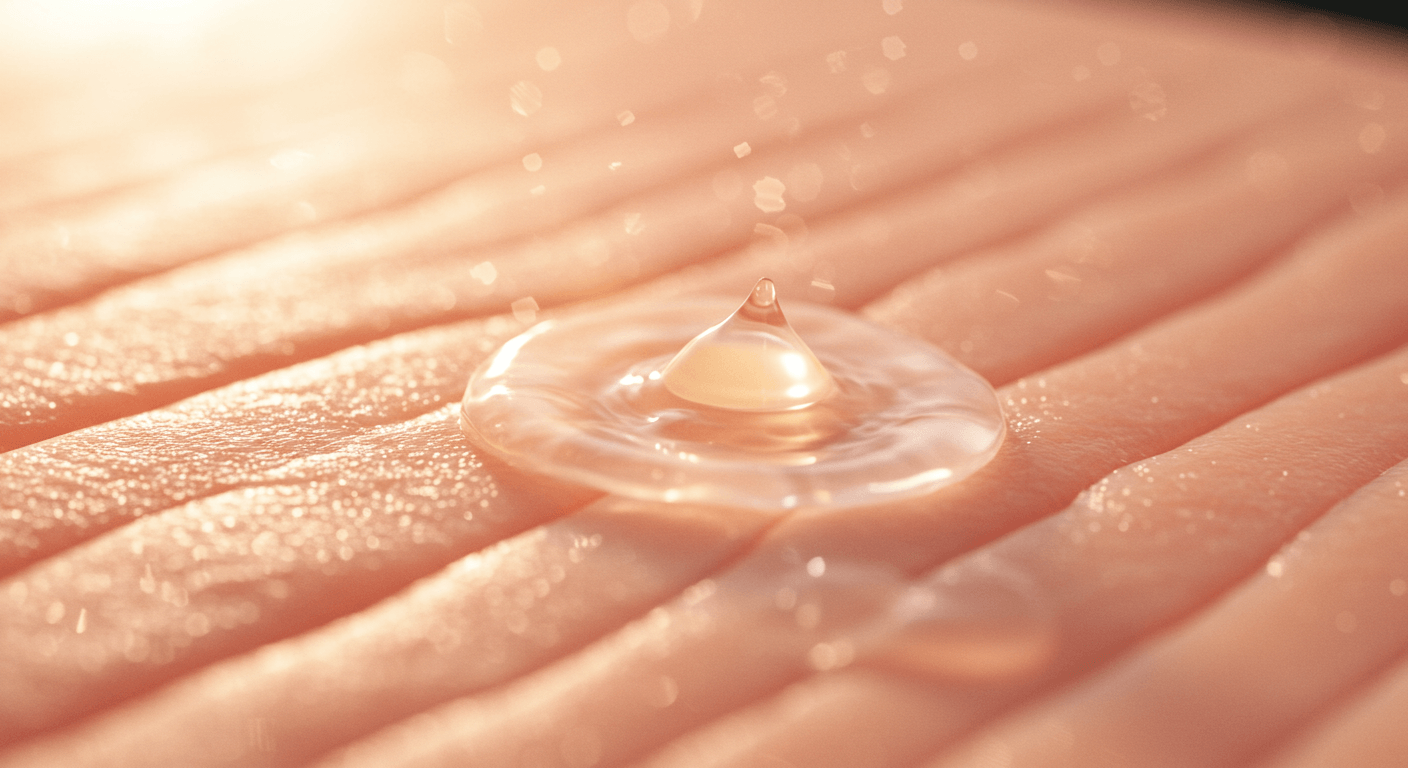
The Importance of Hydrated Skin
Before you probe summer activities, it’s crucial to understand the importance of keeping your skin hydrated. Well-hydrated skin enhances elasticity, allowing it to recover more efficiently from damage and reduce the appearance of fine lines and wrinkles. Not only does adequate hydration make your skin look healthy, but it also contributes to overall skin function. It aids in the production of natural oils and keeps your skin microbiome balanced, helping to fend off irritants and maintain your skin’s natural moisture barrier.
Factors Affecting Skin Hydration in Summer
By knowing what affects your skin hydration during the summer, you can take proactive steps to protect your skin. Several factors can contribute to decreased hydration levels, including high temperatures, increased exposure to UV rays, and the use of certain skin products. Additionally, activities like swimming in chlorinated pools or spending extended periods in air-conditioned environments can further deplete your skin of moisture. You should also be mindful of water intake, as staying hydrated internally is just as important as external hydration.
- High temperatures can increase perspiration, leading to moisture loss.
- UV rays can damage the skin’s barrier and promote dryness.
- Air conditioning can create a dry indoor environment.
- Chlorine from pools can strip away natural oils.
It’s vital to evaluate your skincare routine during these warmer months. For instance, lightweight, hydrating products can replace heavier creams that may become too greasy in the heat. Also, incorporating humectants like hyaluronic acid into your regimen can help attract and retain moisture. Knowing how these elements interact with your skin can empower you to make better choices that promote hydration.
- Humectants draw moisture from the environment into your skin.
- Lightweight products can hydrate without feeling heavy.
- Internal hydration through water intake supports skin health.
- Your environment can significantly affect skin moisture levels.
Tip #1: Choose the Right Moisturizer
Even during the warmer months, selecting the appropriate moisturizer is imperative to maintaining hydrated and healthy skin. The right formula can help prevent moisture loss caused by sun exposure, heat, and sweat. When shopping for moisturizers, you should look for products specifically designed for your skin type and suitable for summer conditions. This means considering textures, ingredients, and the overall hydration level you need while keeping in mind that summer skincare often calls for lighter formulations that won’t clog your pores.
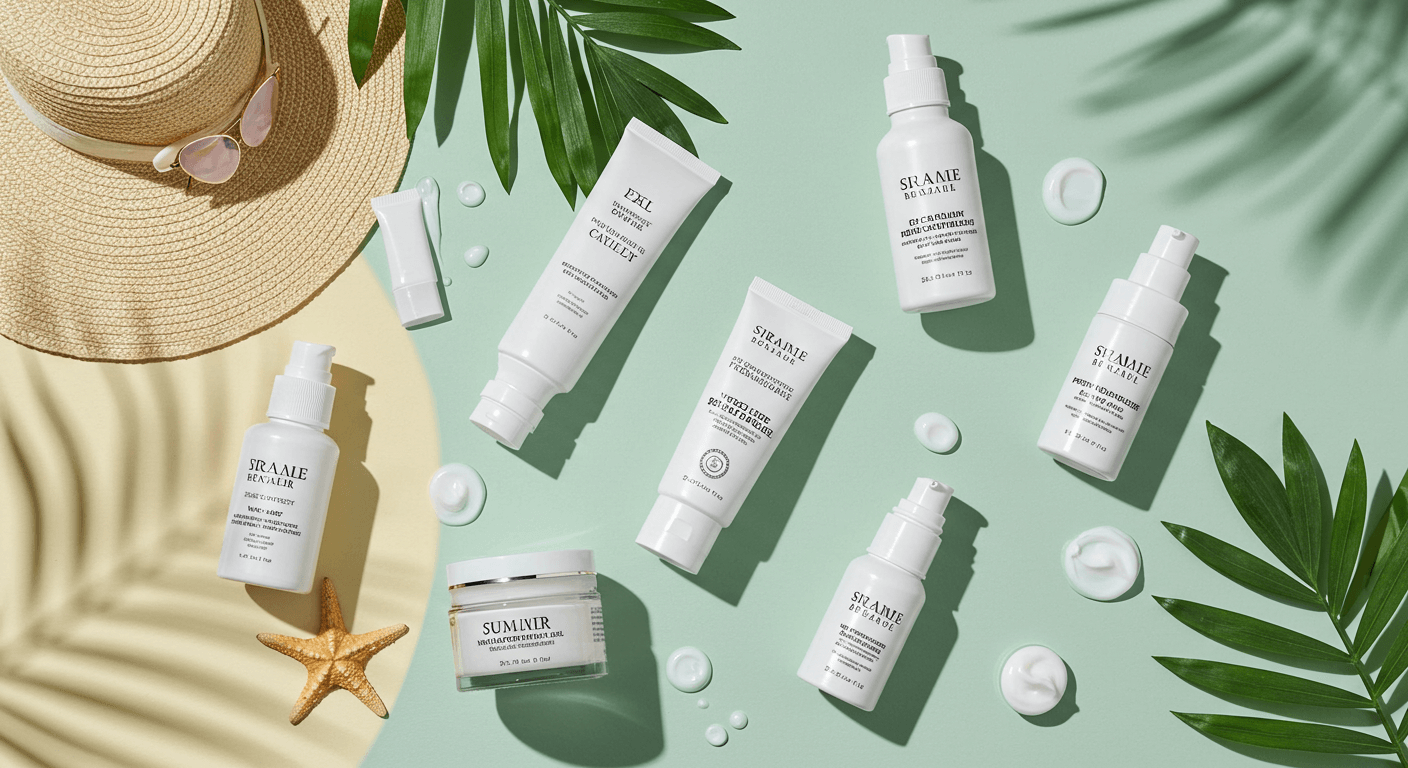
Ingredients to Look For
Any effective summer moisturizer should contain ingredients that soothe and replenish your skin. Look for components like hyaluronic acid, which can hold up to 1000 times its weight in water, helping to keep your skin plump and hydrated. Glycerin is another excellent ingredient, drawing moisture into the skin and enhancing its natural barrier. Additionally, ingredients such as aloe vera and cucumber extract can provide a refreshing feeling while offering hydration and cooling benefits.
Lightweight vs. Heavy-Duty Formulations
Besides focusing on hydration, you should also consider whether a lightweight or heavy-duty formulation is better suited for your skin’s needs during summer. Lightweight lotions and gel-based moisturizers are fantastic for those with oily or combination skin types, as they hydrate without leaving a heavy residue. Conversely, if your skin tends to be dry or sensitive, you might want to opt for heavier creams or oils that provide a deeper level of hydration to combat moisture loss.
HeavyDuty creams often come packed with rich emollients and occlusive agents that create a barrier on your skin, helping to lock in moisture. While these formulations can be beneficial in dry or air-conditioned environments, be cautious of using them during the hottest days of summer, as they may lead to excess oil production and breakouts. Identify your skin’s needs throughout the season and adjust your moisturizer accordingly for the best results.
Tip #2: Stay Hydrated from Within
Keep in mind that hydration starts from the inside. While topical skin products can help, the foundation of well-moisturized skin is adequate water intake. You might be surprised to know how many people overlook drinking enough water, especially during the hotter months. Staying adequately hydrated will not only help your skin maintain its moisture barrier but can also support your overall health. Aim for at least eight glasses of water daily, adjusting based on your activity level and climate. Doing so can combat signs of dehydration, like dryness and flakiness, making your summer skincare routine significantly more effective.
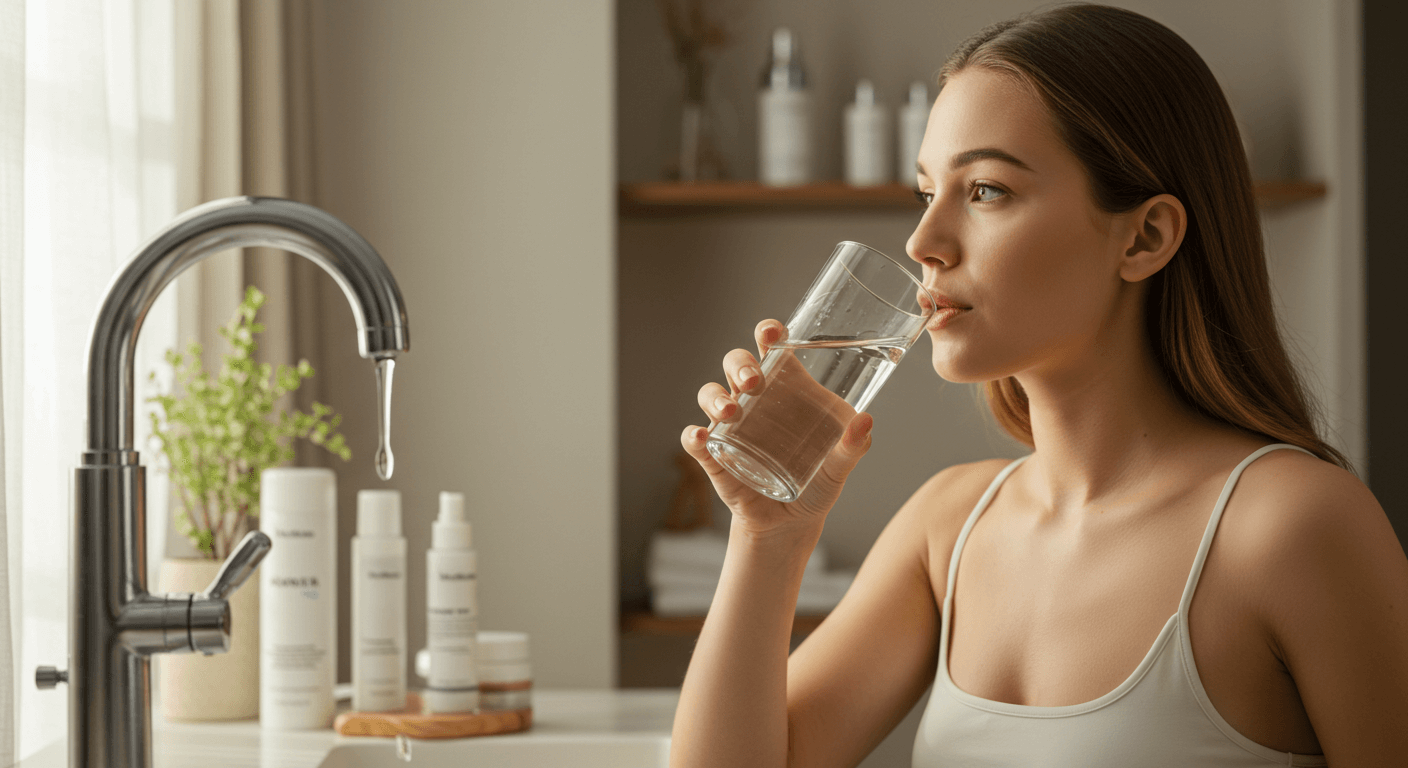
The Role of Water Intake
Against the backdrop of hot summer days, the importance of water intake becomes even more pronounced. When your body is well-hydrated, it can more effectively flush out toxins and deliver imperative nutrients to your skin cells. Insufficient water consumption can lead to decreased skin elasticity and an increased appearance of fine lines. This is particularly detrimental during the summer when UV exposure and environmental stressors can heighten skin vulnerability to damage. Staying hydrated can help you maintain a glowing complexion and reduce your risk of experiencing skin irritations caused by heat.
Foods That Boost Hydration
To further enhance your hydration strategy, incorporating certain foods into your diet can be incredibly beneficial. Fruits and vegetables with high water content, such as cucumbers, watermelon, oranges, and strawberries, can serve as delicious allies in your quest to keep your skin hydrated. These foods not only provide your body with the necessary liquid but also supply imperative vitamins and minerals that contribute to skin health. Adding these hydrating foods to your meals can maintain your skin’s moisture levels, offering an extra layer of protection against summer dehydration.
Role of vitamin-rich foods is not to be underestimated. Including ingredients such as leafy greens, bell peppers, and radishes into your diet can further amplify hydration levels while providing a rich source of nutrients to support skin repair and renewal. Foods containing healthy fats, like avocados and nuts, can also aid in maintaining the skin barrier, preventing moisture loss. By prioritizing both water intake and hydration-boosting foods, you’re setting the foundation for radiant skin that can withstand the summer heat.
Tip #3: Use Sunscreen Daily
For healthy summer skin, applying sunscreen daily is non-negotiable. The sun’s rays can be incredibly damaging, even on cloudy days, making it imperative to protect your skin from harmful ultraviolet (UV) radiation. Not only does regular use of sunscreen help to prevent sunburn, but it also plays a significant role in reducing the risk of skin cancer and preventing early signs of aging such as fine lines and wrinkles. By making sunscreen a part of your daily skincare routine, you’re investing in the long-term health and appearance of your skin.
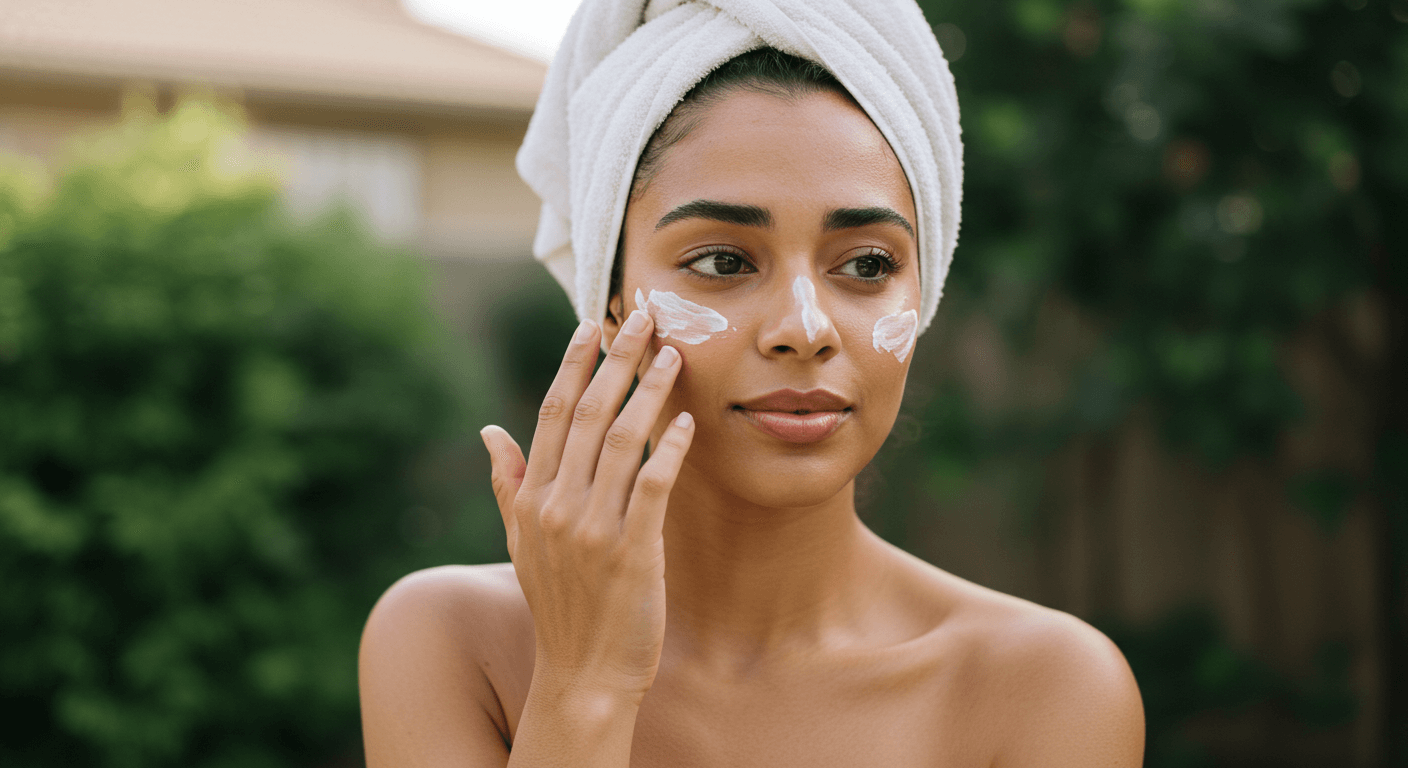
Importance of SPF
Below, it’s imperative to understand the significance of Sun Protection Factor (SPF) in your sunscreen selection. SPF is a measure of how well your sunscreen will protect your skin from UVB rays, the primary cause of sunburn. A higher SPF rating means better protection, so look for products with at least SPF 30 for daily use. Additionally, it’s important to note that SPF only measures UVB protection, so ensure you choose a broad-spectrum sunscreen that also shields against UVA rays, which contribute to deeper skin damage.
Sunscreen Ingredients for Skin Hydration
Any sunscreen you choose should not only protect your skin but also hydrate it. Look for formulations that include hydrating ingredients such as hyaluronic acid, glycerin, and aloe vera. These ingredients help to retain moisture in your skin, preventing dryness that can be exacerbated by sun exposure. Additionally, some sunscreens contain antioxidants like vitamin E that help combat free radicals generated by the sun, further supporting your skin’s hydration and overall health.
Considering the importance of hydration, you should always opt for sunscreens labeled as “hydrating” or “moisturizing,” especially if you have dry skin. Products that combine sunscreen protection with hydrating ingredients ensure your skin remains nourished while effectively guarding against UV damage. This dual action not only helps maintain your skin’s moisture levels but also enhances its resilience against environmental stressors. An informed choice in your sunscreen can lead to healthier, more supple skin all summer long.
Tip #4: Adjust Your Cleansing Routine
Once again, your cleansing routine plays a significant role in keeping your skin hydrated during the hot summer months. The right approach can help you remove impurities without stripping your skin of its natural moisture. As temperatures rise, it’s crucial to reassess how you care for your skin and make necessary adjustments that align with your changing needs. This may involve shifting from harsh cleansers that may cause dryness to gentler options that offer hydration and nourishment.

Gentle Cleansers vs. Harsh Soaps
Against the backdrop of summer heat, your skin requires a gentle approach to cleansing. Harsh soaps can disrupt your skin’s protective barrier and lead to increased moisture loss, leaving you feeling parched. Instead, opt for gentle, hydrating cleansers that cleanse effectively without compromising your skin’s moisture levels. Look for products that contain natural ingredients such as aloe vera or glycerin, which help to maintain skin hydration while effectively cleansing.
Timing Your Cleansing
Timing your cleansing routine can be just as important as the products you choose. Timing your washes to suit your daily activities can help maximize hydration levels. In the summer, you might find yourself sweating more often or exposed to environmental pollutants. This necessitates adjusting the frequency of your cleansing. Consider cleansing your face twice a day—once in the morning to remove overnight oils and once in the evening to eliminate dirt and grime accumulated throughout the day.
For instance, if you engage in outdoor activities, a mid-afternoon refresh can also be beneficial. This added cleanse can help wash away sweat and dirt, preventing clogged pores and breakouts. Opt for a gentle cleanser during this midday wash to ensure that you keep your skin hydrated. It’s about understanding your skin’s needs in real-time and adjusting your routine accordingly to keep it healthy and glowing.
Tip #5: Incorporate Hydrating Masks
Despite your best efforts to keep your skin moisturized during the summer, the heat and sun can still take a toll, leaving your skin feeling parched. One effective way to combat this issue is to incorporate hydrating masks into your skincare routine. These masks can provide a concentrated dose of moisture that revitalizes your skin and helps maintain a healthy glow throughout the hotter months. Whether you opt for sheet masks, cream masks, or gel-based options, they can immensely boost your skin’s hydration levels and assist in repairing any summer-related damage.
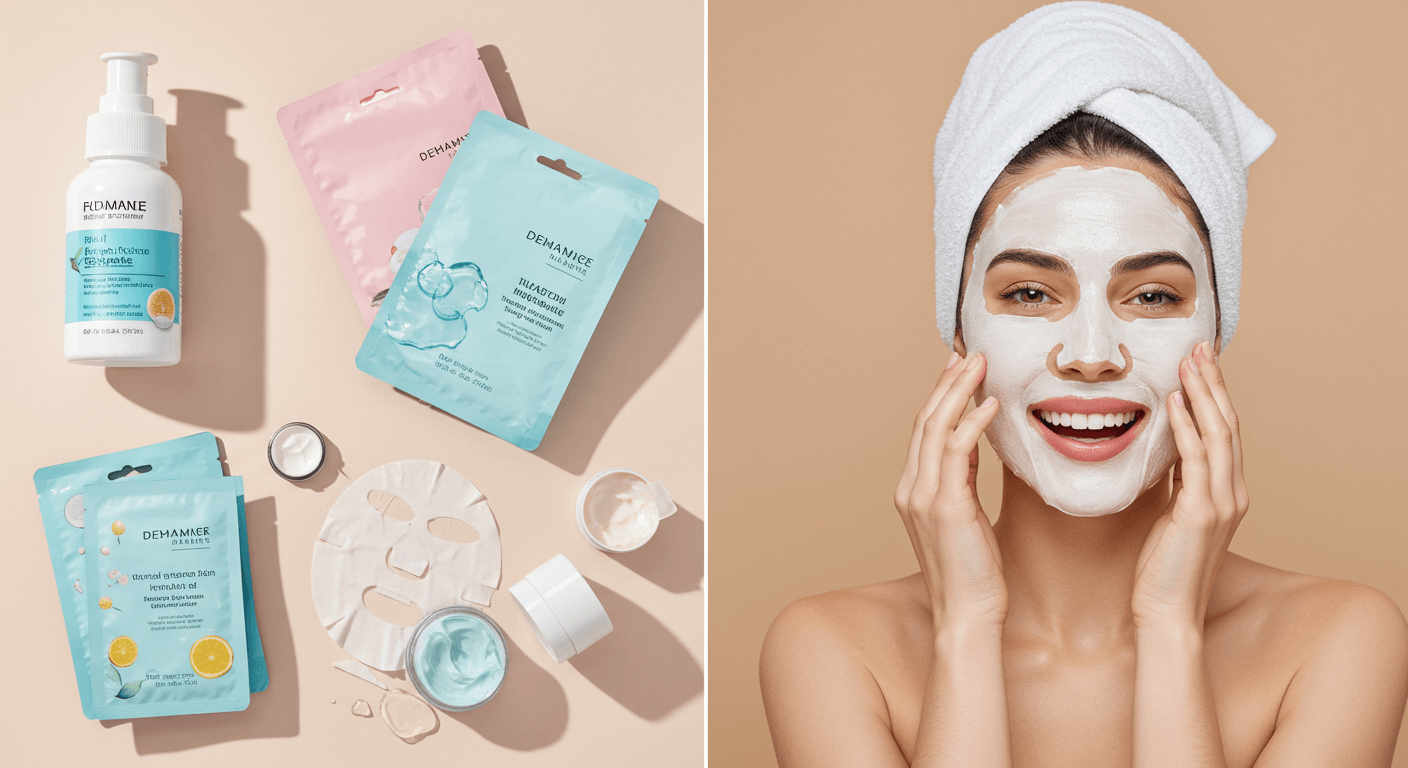
Types of Masks to Use
Masks can be a comforting addition to your skincare regimen, providing immediate hydration and replenishing your skin’s moisture levels. Here’s a breakdown of popular types of masks that you might consider:
| Type of Mask | Benefits |
| Sheet Masks | Easy to use and infused with hydrating serums. |
| Cream Masks | Rich and emollient, great for deep hydration. |
| Gel Masks | Refreshing and lightweight, perfect for oily skin. |
| Overnight Masks | Deliver hydration while you sleep for ultimate skin rejuvenation. |
| Homemade Masks | Customizable with natural ingredients for targeted treatment. |
Recognizing the importance of *masking* can elevate your skincare routine considerably. By selecting the right mask for your skin needs, you can enhance hydration and provide your skin with the extra nourishment it craves.
Frequency and Application Tips
Behind every effective skincare strategy is the right *application* frequency and method. To truly benefit from hydrating masks, aim to use them two to three times a week, depending on your skin type and hydration needs. Always start with a clean, dry face to ensure that the mask can penetrate and deliver nutrients effectively. Make sure to follow the instructions provided with each mask for optimal results.
- Know your skin type and select a suitable mask to enhance hydration.
- Apply the mask for the recommended time for best results.
- Don’t forget to hydrate your skin post-mask with a light moisturizer.
- Consider the use of an eye mask in conjunction for complete care.
- This will help ensure that your skin remains plump and radiant.
In fact, creating a *masking* habit not only boosts the moisture levels but also provides a moment of relaxation to your routine. By incorporating these *masks* effectively, you give your skin the chance to absorb beneficial ingredients thoroughly and can visibly see an improvement in hydration and overall appearance. Planning your schedule for masking sessions can maximize your skincare’s *potency*, ensuring your skin is prepared to face the summer with a fresh glow.
- Choose masks with active ingredients targeting hydration.
- Don’t leave a mask on for too long as it may draw moisture back out from your skin.
- Pair your routine with a serum or essence for layered moisture.
- Incorporate self-care time; your skin will thank you!
- This small addition to your routine can make a significant impact.

Conclusion
Hence, by implementing these top five summer skincare tips, you can keep your skin hydrated and feeling refreshed throughout the warmer months. Make sure you incorporate sunscreen into your daily routine, drink plenty of water, and choose lightweight, moisturizing products that suit your skin type. Additionally, considering proper shower techniques and dietary choices can significantly enhance your skin’s hydration levels. By prioritizing these aspects, you ensure that your skin looks and feels its best during the hot summer days.
Taking care of your skin in summer is not just about maintaining aesthetics; it’s about protecting your health. You’ll establish a solid foundation for your skin’s well-being with the right habits. For more in-depth insights about skin care that can complement your routine, check out this reading on Skin care: 5 tips for healthy skin. Equip yourself with knowledge, integrate these tips into your lifestyle, and enjoy a vibrant, hydrated complexion all summer long.
FAQ:
Q: Why is it important to keep my skin hydrated during summer?
A: During summer, the heat and humidity can cause excessive sweating, which may lead to dehydration. Hydrated skin is vital for maintaining its barrier function, elasticity, and preventing issues like dryness and sun damage. Adequate hydration helps your skin look healthy, fresh, and youthful.
Q: What are the best types of moisturizers to use in the summer?
A: In the summer, light, oil-free or gel-based moisturizers are ideal. They provide hydration without feeling heavy or greasy on the skin. Look for ingredients such as hyaluronic acid, aloe vera, or water-based formulations that absorb quickly and keep your skin feeling fresh.
Q: How often should I apply sunscreen to keep my skin hydrated?
A: It is important to apply sunscreen every two hours, especially if you’re swimming or sweating. Look for sunscreens with hydrating properties that contain additional moisturizing ingredients, such as glycerin or antioxidants, to help maintain skin hydration while protecting against UV radiation.
Q: Can I use hydrating facial mists in my summer skincare routine?
A: Absolutely! Hydrating facial mists can provide an instant boost of moisture to your skin at any time of the day. Look for mists formulated with soothing ingredients like rose water, cucumber extract, or green tea. These can help refresh and hydrate your skin, especially after sun exposure or when outdoors.
Q: Are there any foods I can eat to help keep my skin hydrated during summer?
A: Yes, consuming water-rich fruits and vegetables can significantly impact your skin’s hydration levels. Foods like watermelon, cucumbers, strawberries, and oranges not only hydrate from within but also provide vital vitamins and antioxidants to support healthy skin. Drinking plenty of water throughout the day is also vital for overall skin health.

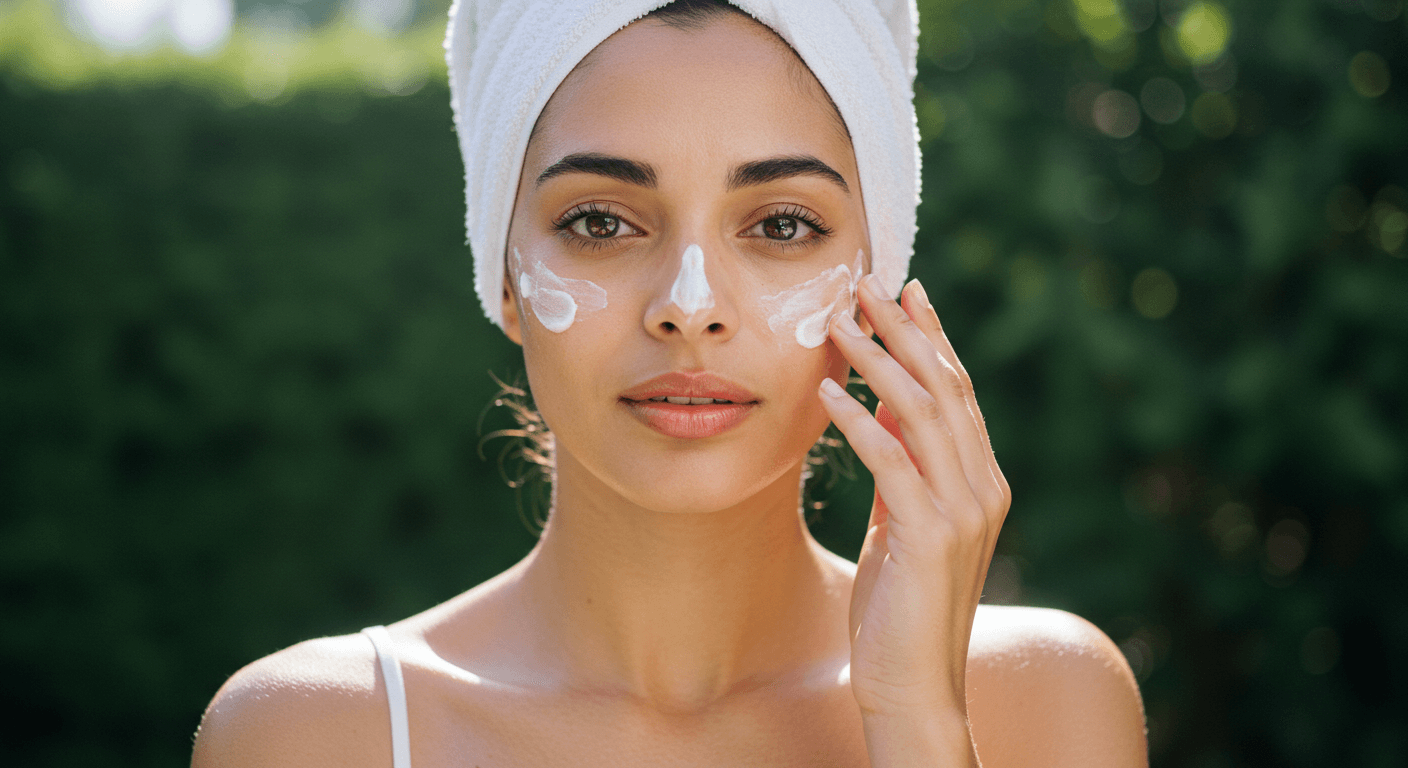


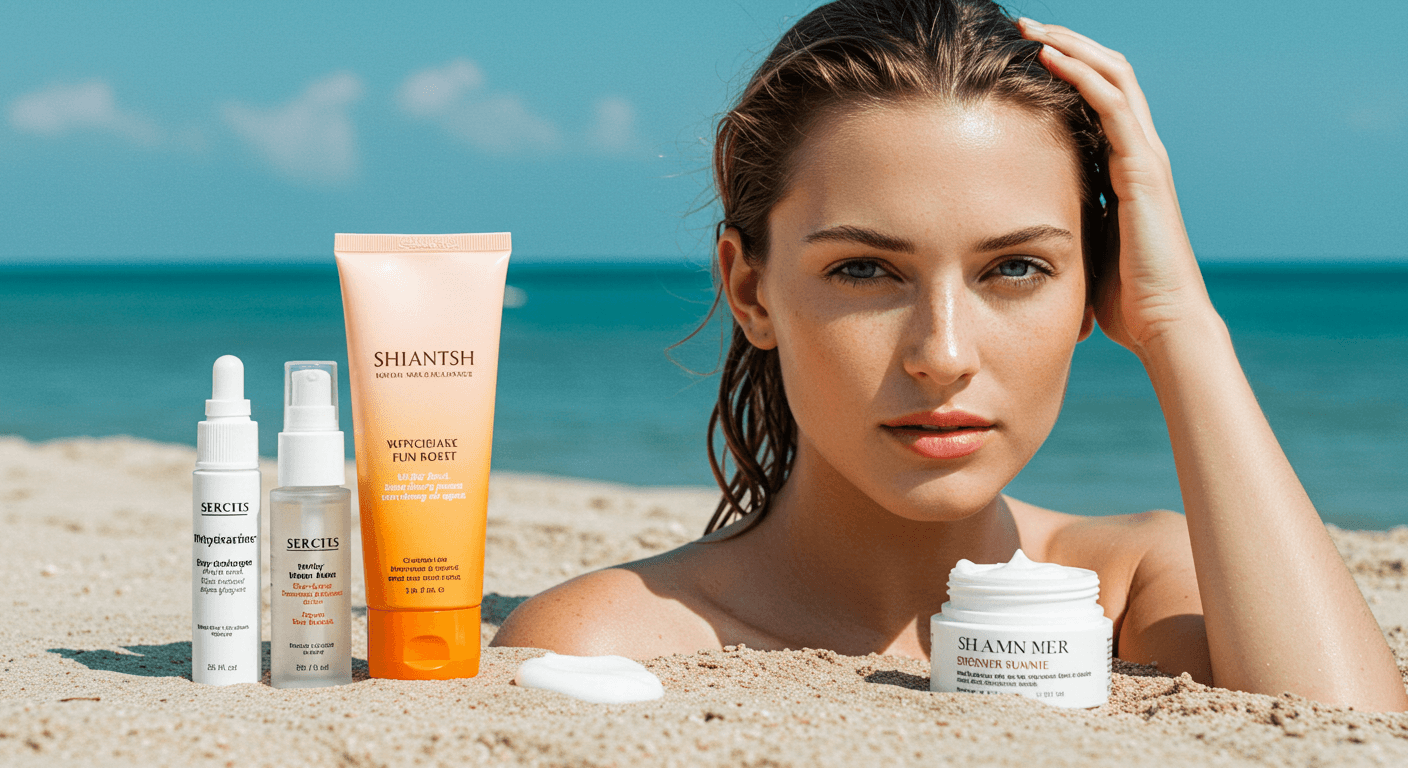


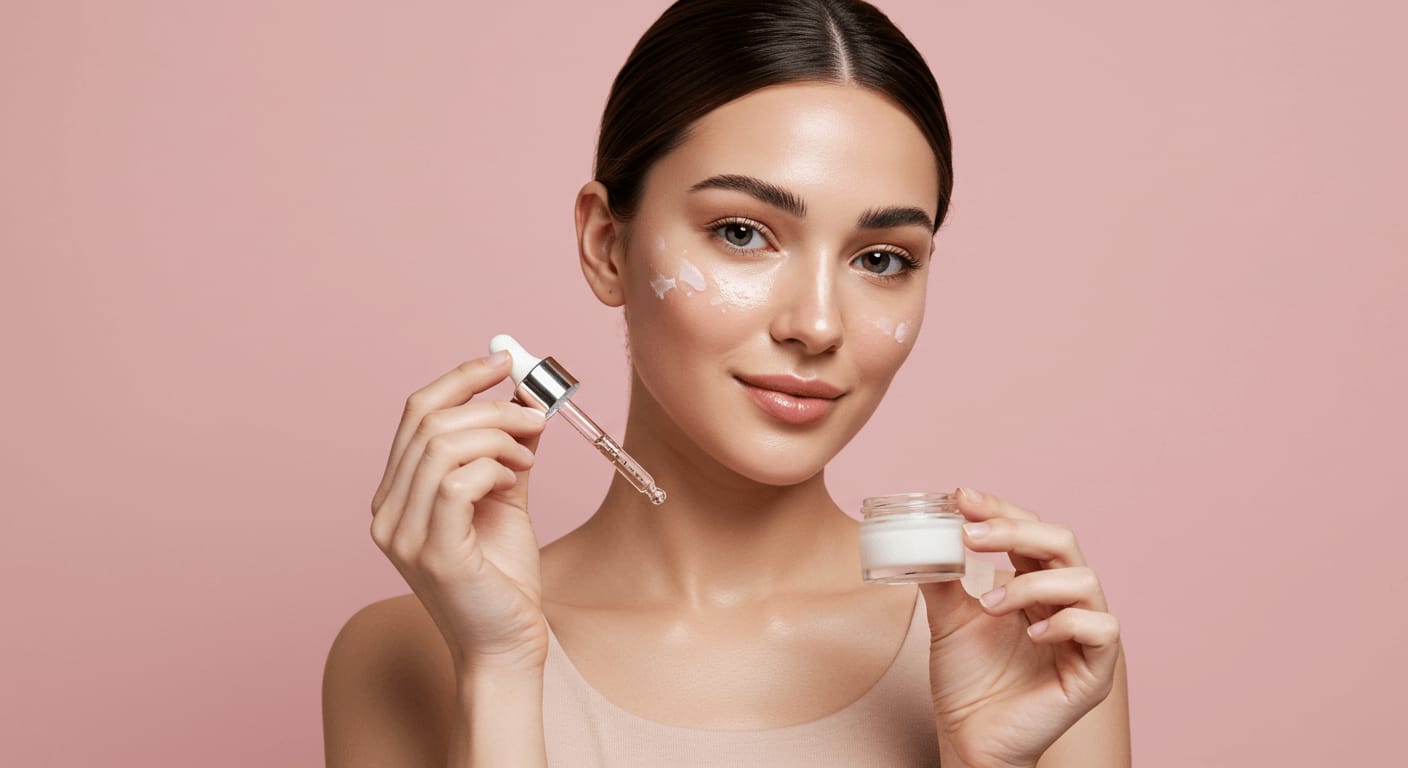



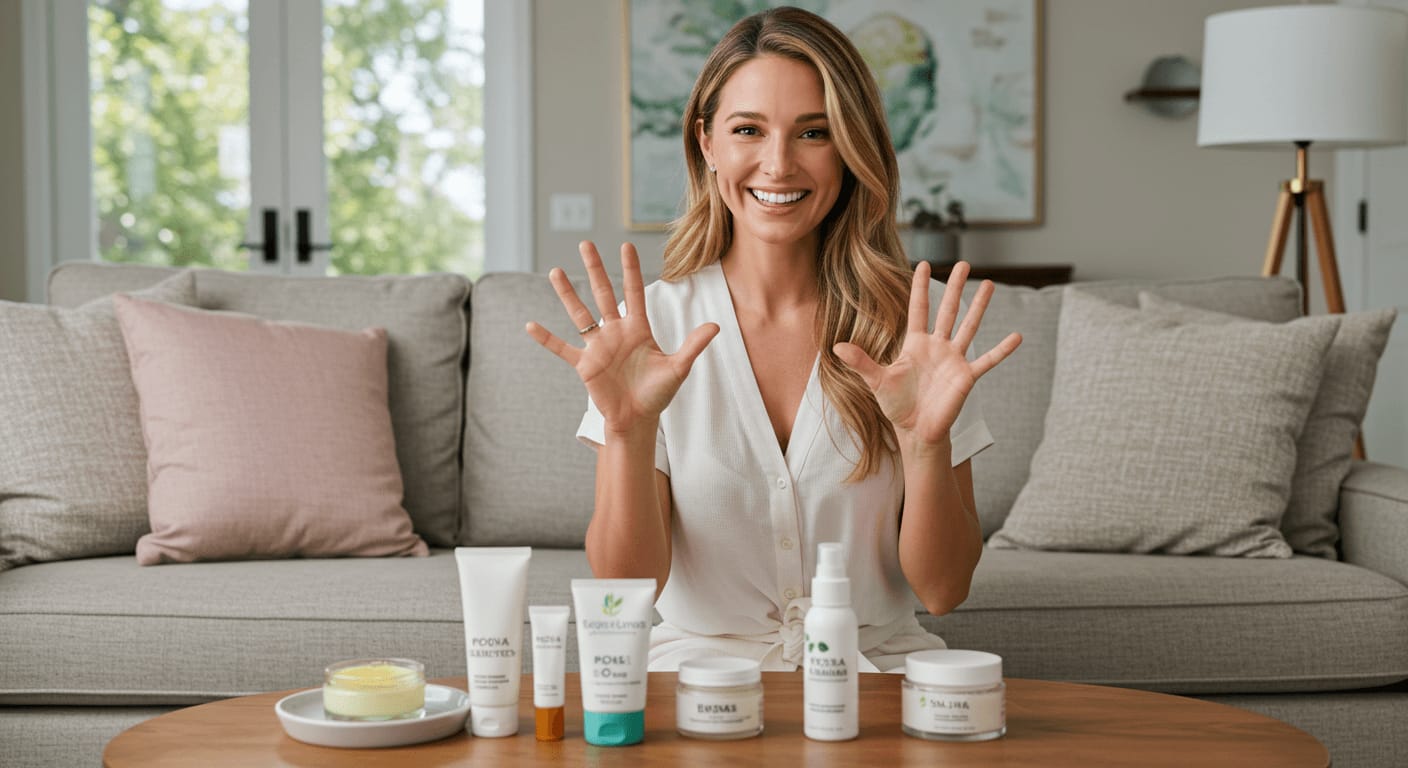





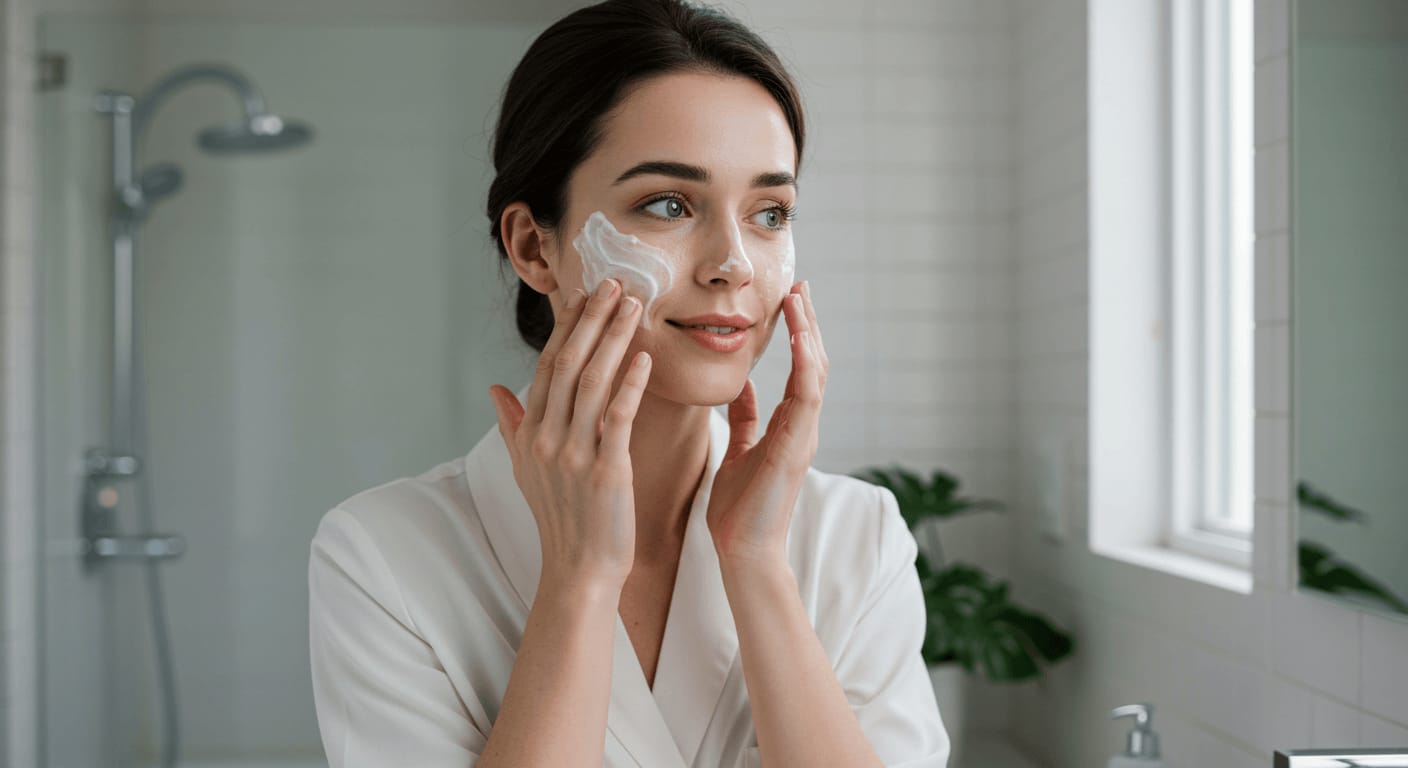








0 Comments